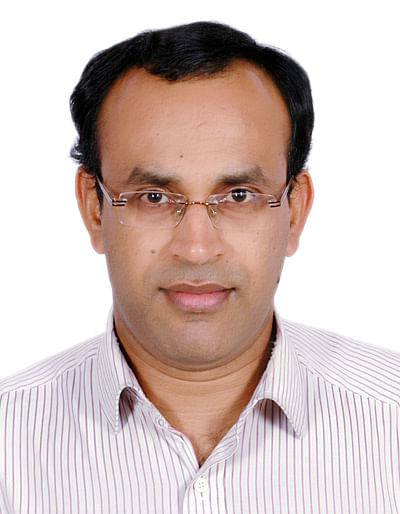
Countering Whatsapp's argument against the provisions of the Social Media Intermediary rules 2021, Centre on Wednesday strongly defended its new digital rules saying they do not violate privacy and sought a compliance report from social media platforms such as Facebook, Twitter, YouTube, Instagram and WhatsApp with regard to the new rules applicable from Wednesday.
The IT Ministry's statement came shortly after WhatsApp filed a lawsuit in the Delhi High Court, opposing the provision of the new digital rules that required the company to provide access to encrypted messages and said that this will break privacy protections.
WhatsApp has filed a petition before the Supreme Court of Brazil on a similar matter.
"The Government of India is committed to ensure the Right of Privacy to all its citizens but at the same time it is also the responsibility of the government to maintain law and order and ensure national security," Minister for Electronics and Information Technology Ravi Shankar Prasad said.
The ministry argued that the UK, US, Australia, New Zealand and Canada require social media firms to allow for legal interception and "what India is asking for is significantly much less than what some of the other countries have demanded".
Also read: Centre asks social media cos to give compliance report of new rules 'preferably by today'
"Therefore, WhatsApp's attempt to portray the Intermediary Guidelines of India as contrary to the right to privacy is misguided," the official statement said.
Prasad wondered that while on one hand, WhatsApp seeks to mandate a privacy policy in which it will share data of all its users with its parent company Facebook, on the other hand "WhatsApp makes every effort to refuse enactment of intermediary guidelines necessary to uphold law & order & curb fake news."
Defending the guidelines, the Minister said “None of the measures proposed by India will impact the normal functioning of WhatsApp in any manner whatsoever and for the common users, there will be no impact."
"As per all established judicial dictum, no fundamental right, including the right to privacy, is absolute and it is subject to reasonable restrictions. The requirements in the Intermediary Guidelines pertaining to the first originator of information are an example of such a reasonable restriction," said the statement.
"The rules are framed after detailed discussion with all stakeholders. It is not only applicable to WhatsApp alone, instead all social media platforms have to follow," the Minister said, wondering why WhatsApp did not approach the government objecting to the first originator issue.
Also read: New social media rules draconian: Congress wants Modi government to shed its 'Big Daddy approach'
The ministry stated that the guidelines were passed only for the purposes of prevention, investigation, punishment etc. of inter alia an offence relating to sovereignty, integrity and security of India, public order incitement to an offence relating to rape, sexually explicit material or child sexual abuse material punishable with imprisonment for not less than five years.
"The Government of India respects the right to privacy and has no intention to violate it when WhatsApp is required to disclose the origin of a particular message. Such requirements are only when a particular message is required for prevention, investigation or punishment of serious offences such as sexually explicit content," the minister said.
Separately, the Ministry of Electronics and Information and Technology also issued a circular asking the large social media platforms to immediately report their status of compliance with the new digital rules.
The ministry has sought details and contact information of Chief Compliance Officer, Resident Grievance Officer and Nodal Contact Person who have been appointed by digital platforms under the new social media rules, as per the note issued to social media firms.
The new rules, announced in February, have come into force from Wednesday (May 26). They require large social media platforms like Twitter, Facebook, Instagram and WhatsApp to follow additional due diligence, including the appointment of a chief compliance officer, nodal contact person and resident grievance officer, monitoring of objectionable content, preparing monthly compliance reports and removal of objectionable content.
The new rules also specify that social media firms adopt features such as traceability of messages and voluntary user verification.
Non-compliance with rules would result in these social media companies losing their intermediary status that provides them exemptions and certain immunity from liabilities for any third-party information and data hosted by them. In other words, they could be liable for criminal action in case of complaints.
